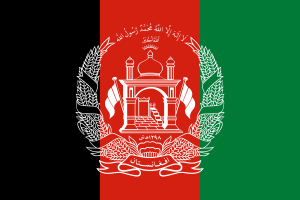Afghanistan: Mid-term Evaluation of the EU funded Support to Regional Cooperation

project description
Through this assignment, the EU aimed to conduct the evaluation of the financing agreement “Support to regional cooperation between Afghanistan and its neighbouring countries”. The mentioned financing agreement was implemented under direct management of the EU and provided EUR 22 million to the regional cooperation sector. The overall objective of the action was to foster regional cooperation and enable Afghanistan to facilitate secure trade links with South and Central Asia. The specific objective was to strengthen the capacity of the relevant Afghan authorities to develop and implement a cohesive strategy on cross-border trade and regional security.
In views of overall and specific objectives of the action, four results were expected to be achieved:
Result 1: The Centre for Regional Cooperation in the Ministry of Foreign Affairs coordinates all concerned Afghan Government bodies; a coherent strategy for Regional Cooperation is implemented involving all relevant regional organisations; and the capability of Regional Cooperation Centre to coordinate the various ministries is strengthened;
Result 2: Coordination and the technical capacity of key officials in the Railway sector is improved, as well as a study on railway development is done;
Result 3: A permanent Customs Training Academy is built, and customs officers are trained; the existing training curriculum is supplemented concerning regional cooperation and Integrated Border Management (Customs-Police cooperation) aspects; and the capacity of key officials is strengthened;
Result 4: The Afghan Border Police is able to control the border with Tajikistan and Uzbekistan more effectively; the installation of Border Liaison Offices coordinating between agencies from both sides of the border is explored; integrated Border Management systems between border police and customs, and where possible other agencies involved in border management, are being established; legitimate cross-border trade is facilitated; the competences of the concerned border police and customs officials are improved to detect, identify and process migrants and victims of human trafficking; good governance in border management is enhanced through corruption prevention and increased transparency and accountability of border procedures and customs duties’ collection; and the precursor trafficking situation and trafficking routes knowledge is enhanced, increasing inter-regional cooperation leading to identification of trafficking networks and safe disposal of seized chemicals.
This evaluation provided the EU and local stakeholders with an overall independent assessment of the past performance of the financing agreement and the four individual contracts that it finances, paying particular attention to its ‘intermediate’ results measured against its objectives. In particular, this evaluation assessed the relevance, effectiveness, efficiency, early sign of impact, sustainability, and contribution to EU’s visibility, identifying lessons learned from years of implementation including on the synergies and complementarity of the components and specifically on the applications of the capacity development of the railway authority, border management sector, and promoting regional capacity. The final output was delivered to the DUE Afghanistan, providing appropriate recommendations to improve the focus, structure, and implementation arrangements for the succeeding phase of the Capacity Development of the Railway Authority.
services provided
- Defined of methods of analysis
- Collected documents and data
- Reviewed the evaluation questions and its expansion/finalization
- Organised meetings at country level with the EU Delegation team, beneficiary partners, ADB, and other implementing partners
- Gathered primary evidence with the use of interviews with the user groups, implementing partners, and physical visit of the project sites
- Analysed findings to formulate the overall assessment, conclusions and recommendations


